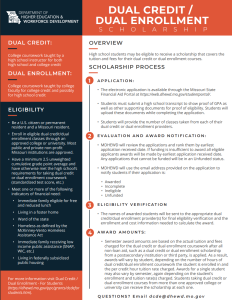How to Disenroll – Drop Class(es)
We hope students are successful; However, if a student is considering dropping, we highly recommend they first review the drop deadline, refund schedule, the possible impact on financial aid in the section below, as well as discuss high school credits and graduation concerns with the school counselor at school and parents or guardians, before completing the process below.
All college credit activity is evaluated for the purposes of obtaining financial aid for college courses after high school graduation. Meaning, activity in dual credit courses count toward the student’s ability to obtain financial aid for college courses in future semesters. Evaluation for financial aid includes enrollment(s), dropping course(s), and all final letter grades earned. It is important students make an informed decision regarding how dropping a class may impact their financial aid ability before dropping the course. Review the policy on our website before contacting Financial Aid office with any further questions.
The next step would be to contact the high school counselor.
We hope students are successful. However, if a student is considering dropping, we highly recommend they first review the drop deadline, refund schedule, the possible impact on financial aid in the section below, as well as discuss high school credits and graduation concerns with the school counselor at school and parents or guardians, before completing the process below.
All college credit activity is evaluated for the purpose of obtaining financial aid for college courses after high school graduation. Meaning, that activity in dual credit courses counts toward the student’s ability to obtain financial aid for college courses in future semesters. Evaluation for financial aid includes enrollment(s), dropping course(s), and all final letter grades earned. It is important that students make an informed decision regarding how dropping a class may impact their financial aid ability before dropping the course. Review the policy on our website before contacting financialaid@otc.edu office with any further questions.
The school counselor determines if the student is eligible to drop based on their graduation requirements at their high school. Students should request a drop via their DualEnroll account by clicking on the three ellipses next to the class on their registration activity page and selecting the “drop” option.


